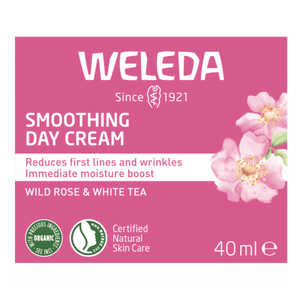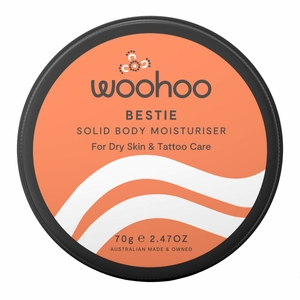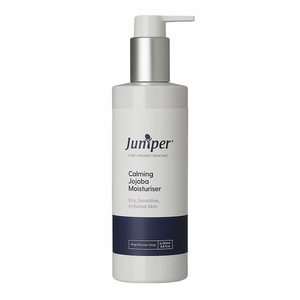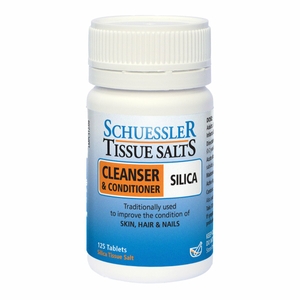
The skin is a complex and dynamic organ that not only protects you from the outside world but also reflects your internal health. It assists with toxin elimination, immune defence, vitamin production, body temperature regulation and sensory perception (1).
What causes skin issues?
Skin issues such as acne, eczema, and psoriasis can be external manifestations of internal imbalances. These can include poor digestion, an imbalance of gut bacteria (dysbiosis), food sensitivities, impaired detoxification, stress, poor circulation, hormonal imbalances, blood sugar dysregulation, infections, inflammation, nutritional deficiencies, and a weakened immune system (2,3,4,5).
External elements such as excessive sunlight exposure, toxic cleaning products, cosmetics, perfumes, dust, mould, and electromagnetic fields can also affect your skin (6,7).
Four tips for healthy skin
Beauty food
Eating a balanced diet rich in a variety of fruits, vegetables, healthy fats, unprocessed whole grains, and lean protein (such as nuts and seeds, eggs, fish, legumes or poultry), provides essential nutrients for your skin, including B vitamins, vitamins A, C, and E, zinc, selenium, and omega-3 fatty acids (8,9).
Hydrate!
Adequate hydration is essential for supporting healthy skin. Drinking at least 8 glasses of filtered water per day, and consuming beneficial herbal teas like nettle, calendula, echinacea, and burdock, can aid in skin healing, toxin excretion, and repair (10).
Use natural products
Using natural and organic products reduces your exposure to harmful chemicals and can help protect your skin from damage, improve tone and texture, prevent blemishes, and reduce the appearance of fine lines and wrinkles (11).
Rest, relaxation, and moderate exercise
Rest, relaxation, and adequate sleep can improve your complexion and boost your immune system, while moderate exercise can stimulate oxygen intake and improve blood flow to your skin to facilitate healing and repair (12).
Common skin issues
Acne
Acne is a common skin condition that occurs when hair follicles become clogged with oil and dead skin cells, leading to the formation of pimples, blackheads, and whiteheads (13). It can appear on various parts of the body, but it is mostly found on the face, chest, and back.
What causes acne?
Acne can be caused by food intolerances, nutritional deficiencies, imbalanced hormones (such as cortisol, oestrogen, progesterone, and testosterone), elevated stress, insulin resistance, poor gut health, and impaired detox pathways (13,14).
Can acne be treated naturally?
Specific nutrients including vitamin A, vitamin E, vitamins B3 and B5, vitamin C, selenium, zinc, probiotics, fibre, and essential fatty acids, may reduce the severity of acne by reducing inflammation, promoting wound healing, and boosting antibacterial activity (2,15).
Herbs such as turmeric, echinacea, tea tree, ginger, burdock, cleavers, yellow dock, calendula, and dandelion can support detoxification pathways, balance hormones, reduce inflammation, support wound healing, and reduce bacterial replication associated with acne (13,14,16).
Natural skin care products can assist in skin repair, improve its tone and texture and prevent blemishes (11,17).
Reducing stress and inflammatory foods like sugar, trans fats, and dairy is also important in the treatment and prevention of acne (15).
Eczema
There are various types of eczema, with most presenting as scaly, red, and itchy skin that develops due to irritants such as dust, pollen and pollution (18). Other causes include an imbalanced gut (dysbiosis), impaired lymphatic system function, and poor detoxification pathways (19).
Natural remedies for eczema
Nutrients that may reduce the severity of eczema include vitamin A, vitamin C, vitamin D, vitamin E, iron, selenium, zinc, essential fatty acids (particularly gamma-linolenic acid, found in borage and evening primrose oil), probiotics and quercetin (16,18,20).
Herbs that may reduce inflammation, enhance immune system function, and facilitate wound healing include aloe vera, burdock, chamomile, gotu kola, echinacea, and St John’s wort (18,21).
Addressing environmental triggers, gut dysbiosis, elevated stress and food allergies or sensitivities are crucial for the treatment and prevention of eczema (3,22,23).
Psoriasis
Psoriasis is an auto-immune condition characterised by the development of red itchy patches with thick silvery scales that appear mostly on the elbows, knees, and scalp (24).
What causes psoriasis?
While a genetic predisposition, infections, stress, excess alcohol consumption, smoking, nutritional deficiencies, and certain medications can increase your risk (25,26), there are nutrients and herbal medicines that can help reduce the severity of psoriasis.
Natural solutions for psoriasis
Vitamin A, vitamin D, vitamin B12, selenium, zinc, essential fatty acids, and probiotics have all been shown to facilitate wound healing, reduce inflammation, and balance immune system function (25,26, 27).
Beneficial herbs including aloe vera, turmeric, boswellia, gotu kola, oregon grape, and white willow, can also help reduce inflammation and modulate immune system function (11,16,18).
It is crucial to limit your intake of alcohol, sugar, highly processed, and fatty foods, and to moisturise skin regularly (23,28).
Moderate sun exposure for 5-10 minutes has immunosuppressive effects on the skin, which can help reduce psoriasis symptoms by slowing skin growth and shedding (29). To stay safe, start with short exposure periods, wear protective clothing, use sunscreen with SPF 30 or higher, and avoid peak sun hours.
Key take-away
Common skin issues like acne, eczema, and psoriasis can be improved by eating a balanced diet, staying hydrated, using natural products, getting enough exercise, and addressing underlying imbalances. Herbs and nutrients that reduce inflammation and promote wound healing can provide symptom relief and enhance your skin’s appearance.





